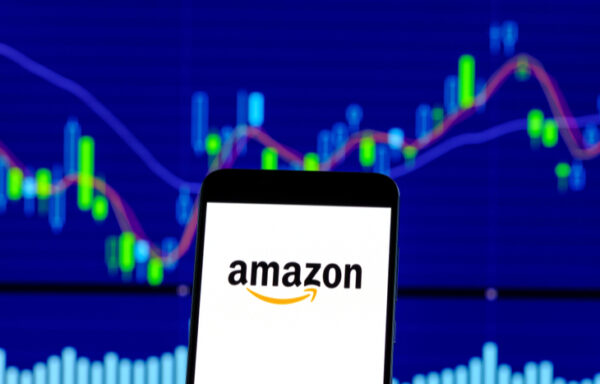Why the WeWork Debacle Is the Death Knell for Unicorns
- The recent downfall of tech darling WeWork is a lot more common than it may seem.
- Today, Nicholas Vardy explains what went wrong and why WeWork’s stunning failure may be a harbinger of doom for other unicorns.
WeWork founder Adam Neumann is a product of his era.
Neumann’s long, flowing hair, insouciant self-confidence and commitment to “elevate the world’s consciousness” convinced investors that WeWork was not just an office rental company with a dodgy business model.
Instead, WeWork was a tech company that shifted the paradigm, redefining how we all work.
Neumann’s salesmanship convinced SoftBank to invest in the company at a valuation of $47 billion. That’s quite a feat for a company that generated $1.9 billion in losses on revenues of $1.8 billion in 2018.
Later, Neumann convinced Goldman Sachs to value WeWork as high as $96 billion. That’s an astonishing 25 times the market value of IWG (LON: IWG), a rival with bigger sales – and a profit to boot.
Then, almost overnight, the bubble popped.
Last week, WeWork pulled its initial public offering (IPO). It was unable to secure even a $10 billion valuation. That’s less than the $12.8 billion it had already raised from investors since 2010.
Neumann resigned as CEO and walked back many of the shenanigans he used to take advantage of the company. But with the investment money tap turned off, WeWork is teetering on the edge of bankruptcy.
Neumann’s road from hero to zero is not unique. Two years ago, it was Uber (NYSE: UBER) founder Travis Kalanick who was forced out of his position as CEO following a string of scandals.
Still, the WeWork debacle signaled a sea change in investor sentiment toward Silicon Valley unicorns.
To me, the prospects of these former market darlings are clear as day.
You need not look further than the internet boom.
Silicon Valley Investor Psychology Explained
I have a confession to make. I find “charismatic” leaders like Neumann irksome.
Call me old-fashioned. But smoking pot on your private plane is not cool when you’re running what you think is a $47 billion company.
Still, the blame for the rise of Neumann rests firmly on the shoulders of Silicon Valley venture capitalists.
Here’s why…
Venture capitalists are always looking for the next Google or Facebook.
They want to put money behind companies and individuals bent on disrupting existing industries. They prefer a bold vision to a sustainable business model.
Profits can come later.
Venture capitalists and public market investors look at a company’s valuation very differently. Silicon Valley is all about cornering massive addressable markets. Stock market investors want to understand a company’s eventual path to profitability.
The clash of these visions leads to very different results.
Abundant venture capital allowed WeWork to stay private for nine years. That’s almost three times longer than the average tech startup in 2001.
The result? An immature company run by self-absorbed founders, not ready for the mature public markets.
Put another way, WeWork never had to grow up.
How This Story Ends
Mark Twain was said to observe, “History does not repeat, but it does rhyme.”
To me, WeWork’s downfall followed an all-too-familiar pattern: Investors are enamored by a charismatic founder who promises to change the world.
The “this time it’s different” logic (the internet in the 1990s or “disruptive” business models in the 2010s) supports the founder’s case.
Valuations soar to absurd levels as investors compete to invest in the “anointed one’s” company.
Then the music stops. The charismatic leader stumbles. Disruption morphs into meltdown. Investors fall out of love.
Consider the case of two iconic, charismatic leaders – and companies – of the internet boom and bust: Steve Case of AOL and Jerry Yang of Yahoo.
At its peak in 1999, AOL had a market cap of $220 billion. Yahoo hit $125 billion in that same year.
Fast-forward about 15 years.
In 2015, Verizon acquired AOL for $4.4 billion. A year later, it acquired what remained of Yahoo for a mere $4.83 billion.
This is how $345 billion of market value shrivels to just over $9.2 billion.
I’m betting the fate of today’s unicorns will be no different.
Uber listed at $45 a share in May. Today, it trades around $30. Lyft (Nasdaq: LYFT) opened at $72 a share in March. Today it’s trading below $40.
Investor sentiment has already turned against Silicon Valley’s disruptors.
Oracle (NYSE: ORCL) founder Larry Ellison recently called both Uber and WeWork “almost worthless.”
WeWork’s flubbed IPO was just another nail in the coffin of today’s market darlings.
It won’t be the last.
[adzerk-get-ad zone="245143" size="4"]About Nicholas Vardy
An accomplished investment advisor and widely recognized expert on quantitative investing, global investing and exchange-traded funds, Nicholas has been a regular commentator on CNN International and Fox Business Network. He has also been cited in The Wall Street Journal, Financial Times, Newsweek, Fox Business News, CBS, MarketWatch, Yahoo Finance and MSN Money Central. Nicholas holds a bachelor’s and a master’s from Stanford University and a J.D. from Harvard Law School. It’s no wonder his groundbreaking content is published regularly in the free daily e-letter Liberty Through Wealth.






